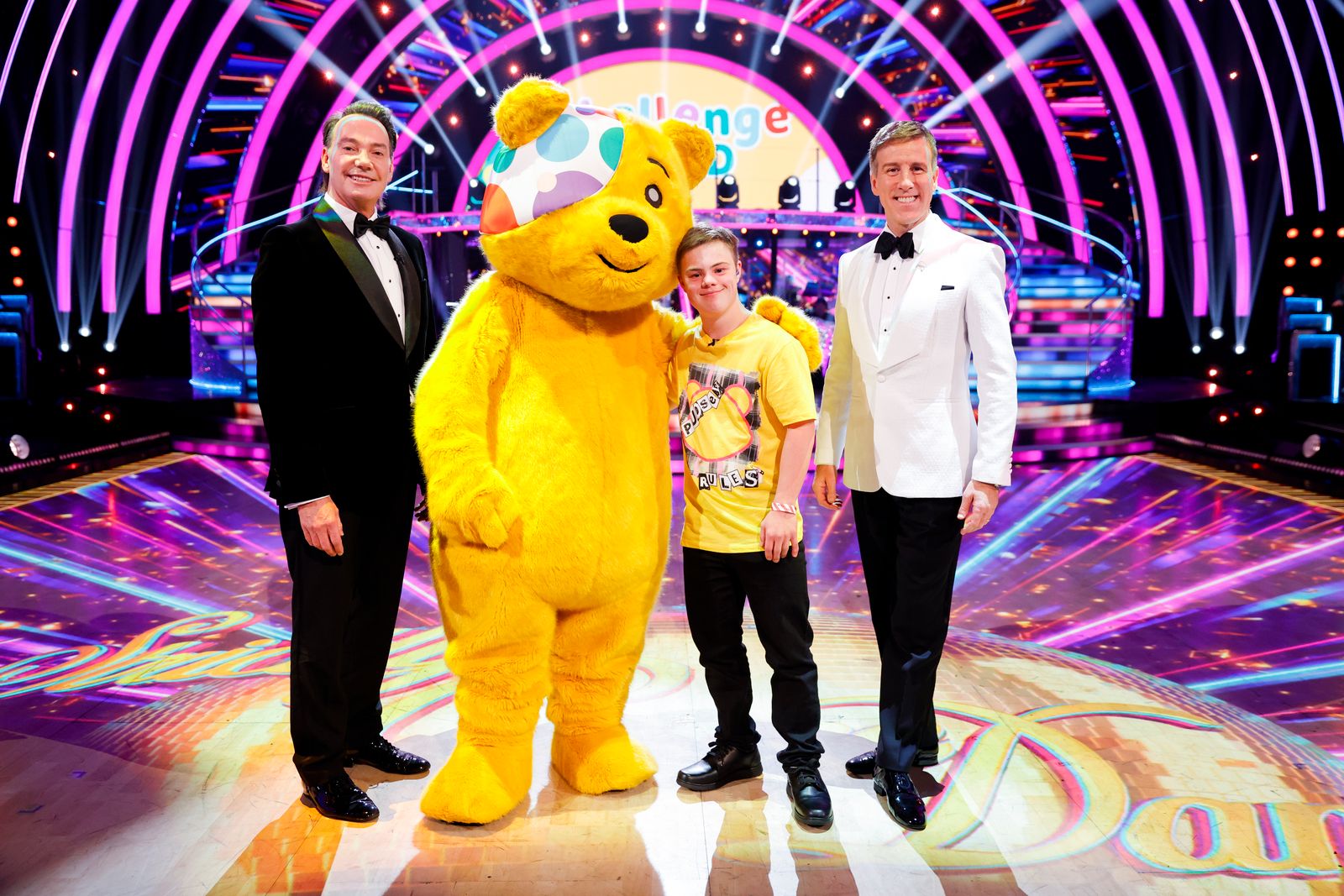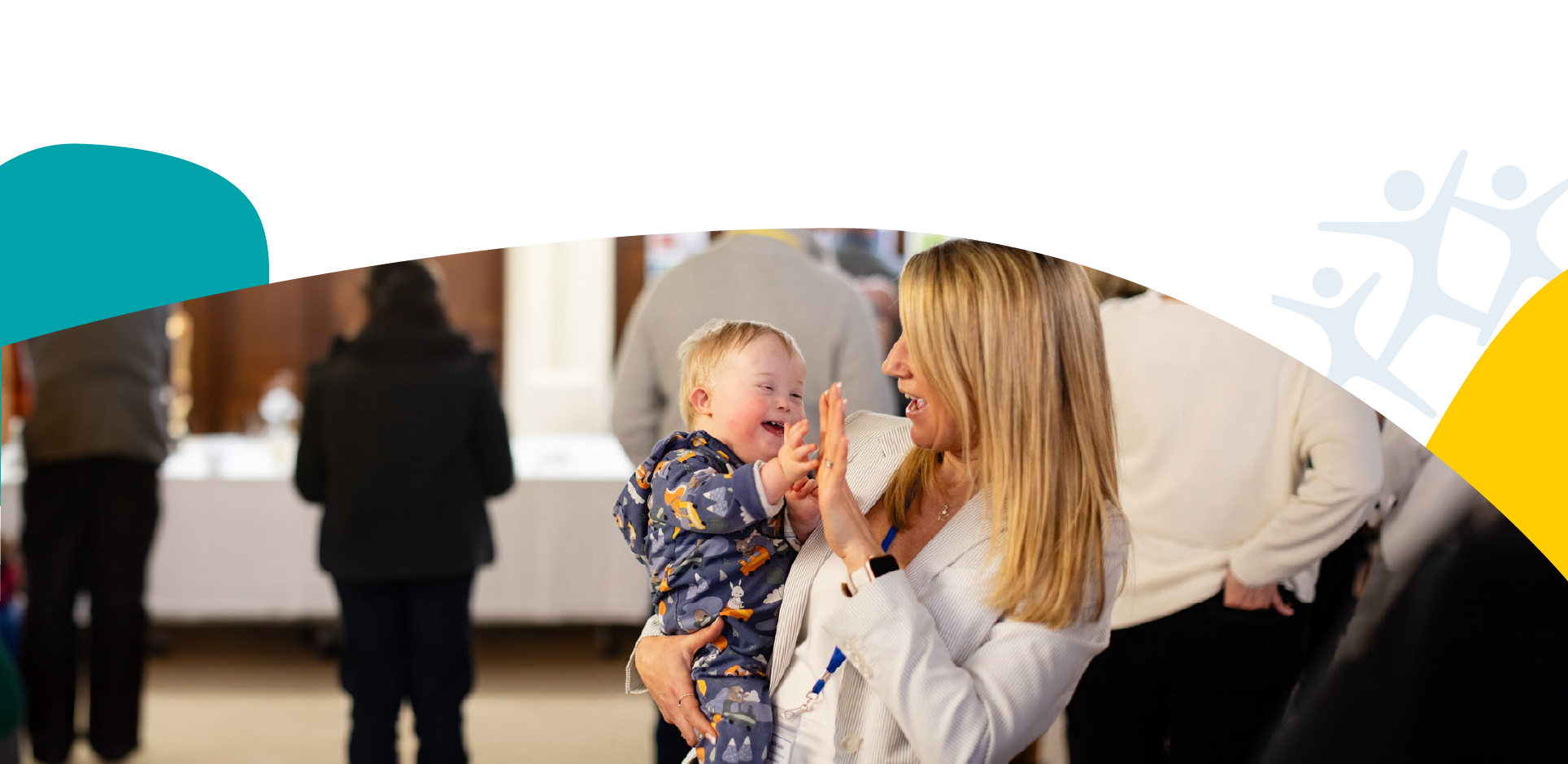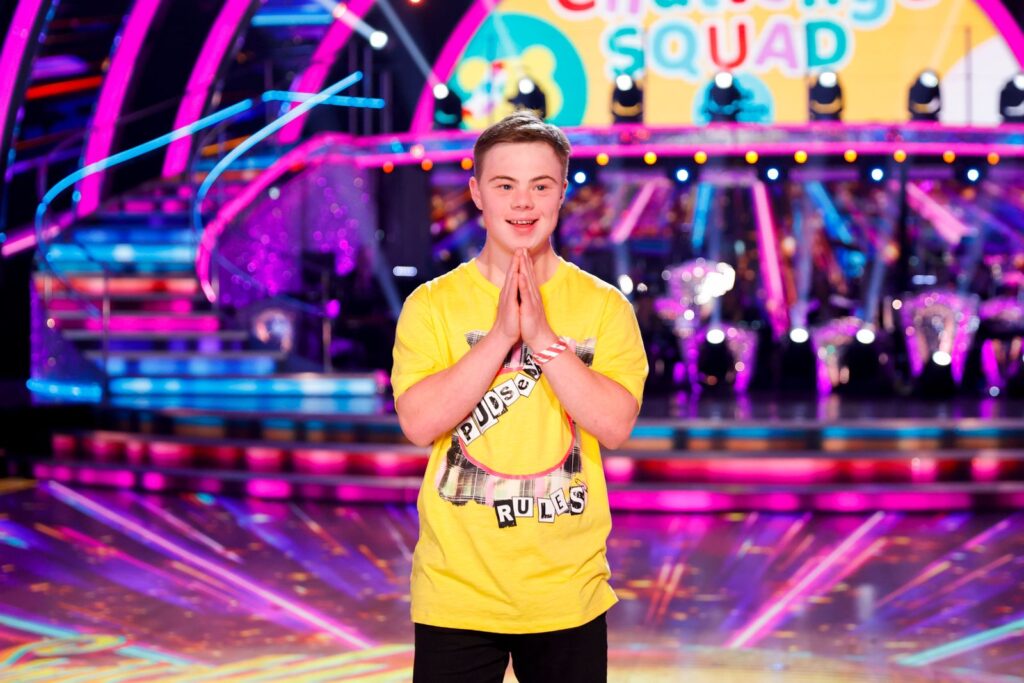
As part of his Children in Need challenge, Lloyd Martin recently faced a huge milestone – delivering a live speech on camera during the filming of BBC Strictly Come Dancing. Even with an autocue, speaking live can be daunting for anyone.
For Lloyd, it was a significant challenge, requiring courage, determination, and lots of preparation. To get ready, Lloyd, his mum Ceri, and the Stepping Stones DS team made several trips to London, practising using the autocue and delivering his speech.
Repetition was key for Lloyd, helping him feel confident and prepared. They also learned the best size and font of text for him to read clearly from the autocue.
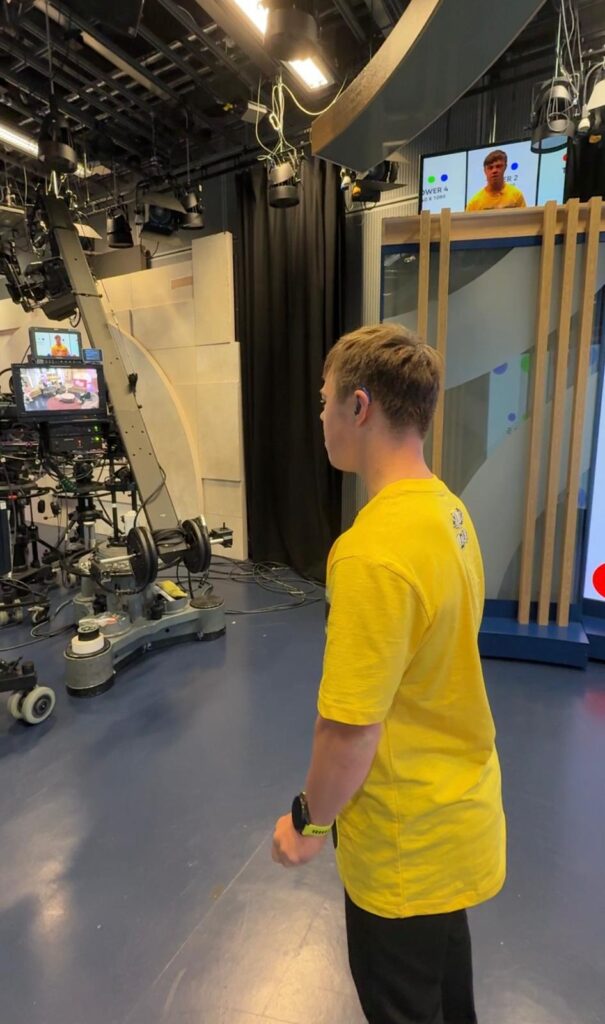
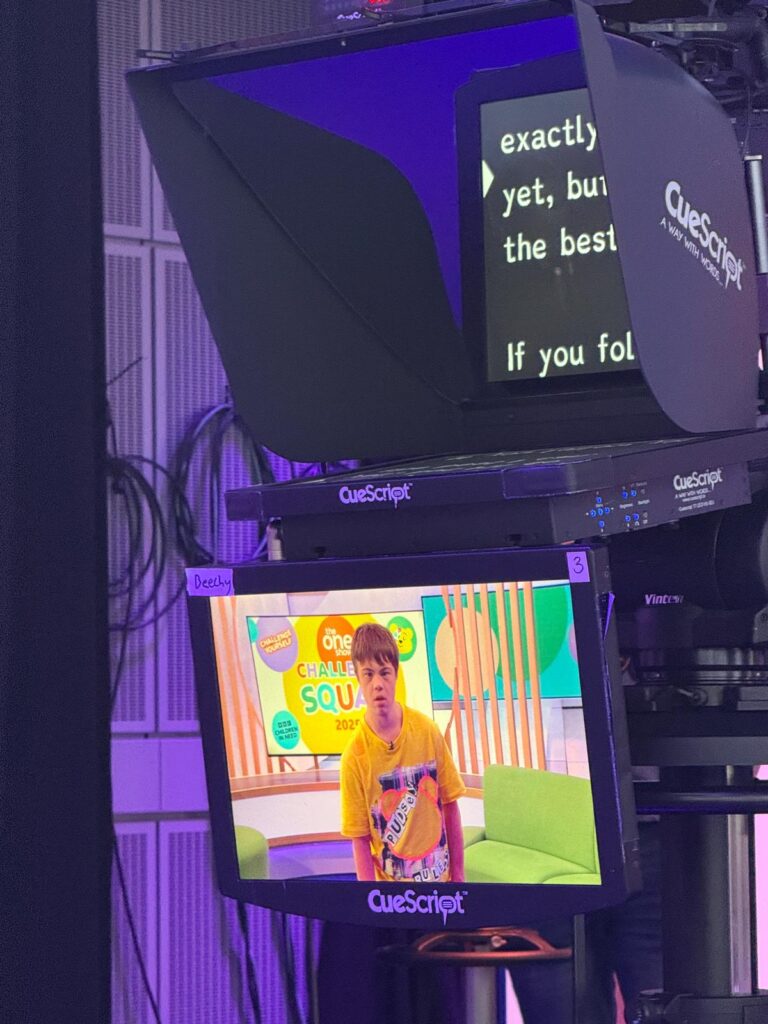
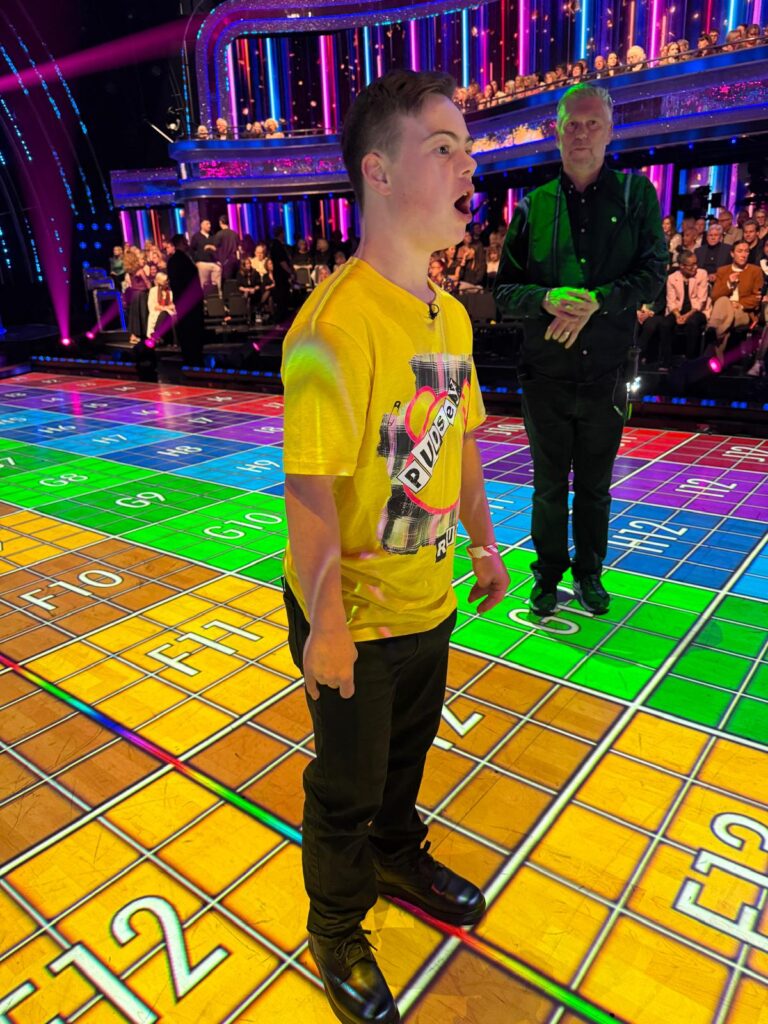
In London, Lloyd had the chance to meet Strictly judges Anton Du Beke and Craig Revel Horwood, even sitting in the judges’ seat and giving Ellie Goldstein a big “10” score – an experience he loved.
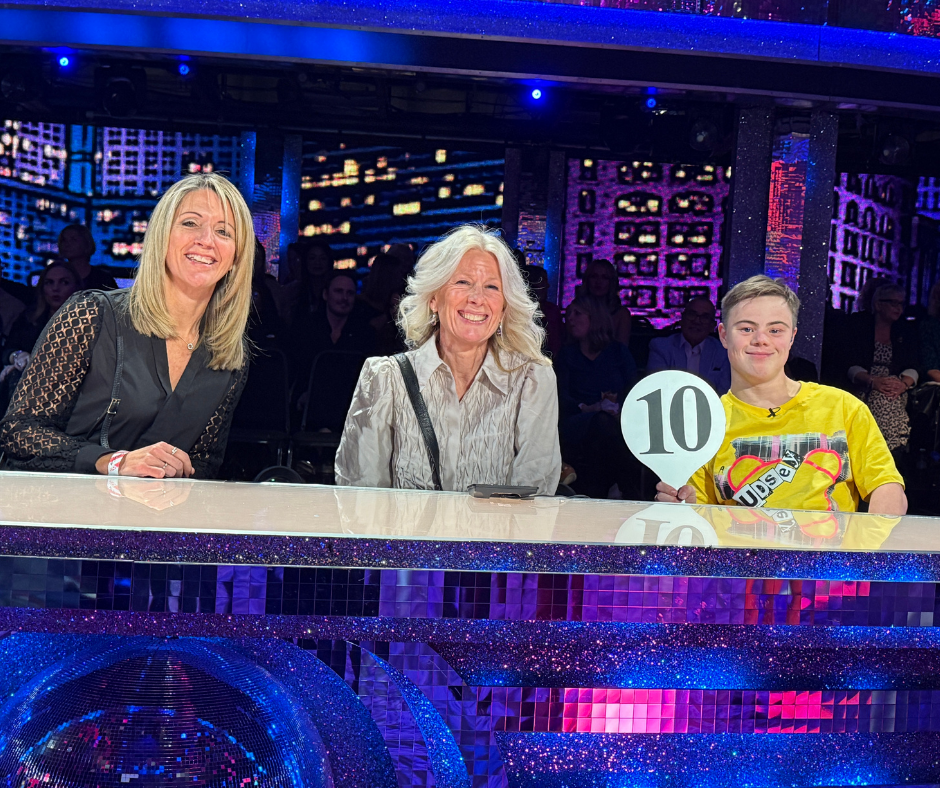
Speech as a Challenge
For many people with Down syndrome, processing information, reading, and speaking fluently under pressure can be particularly difficult. Short-term memory, sensory differences, and the intensity of bright lights and cameras all add to the challenge.
Lloyd’s careful preparation, practice, and support from his team made the difference, resulting in a hugely successful delivery. His speech was even featured on The One Show, inspiring viewers nationwide.
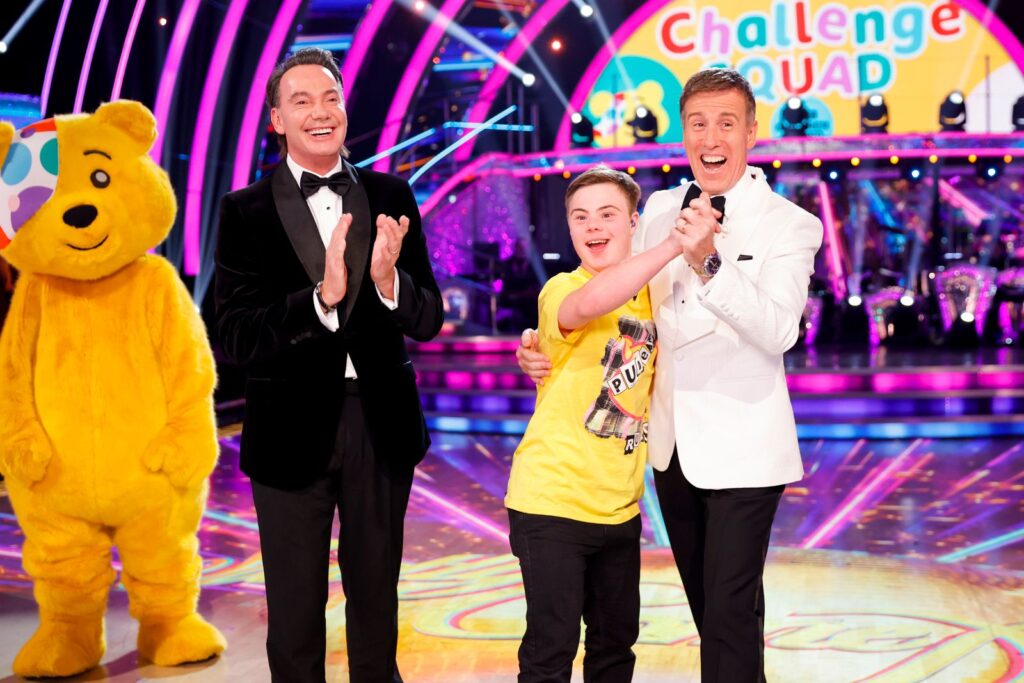
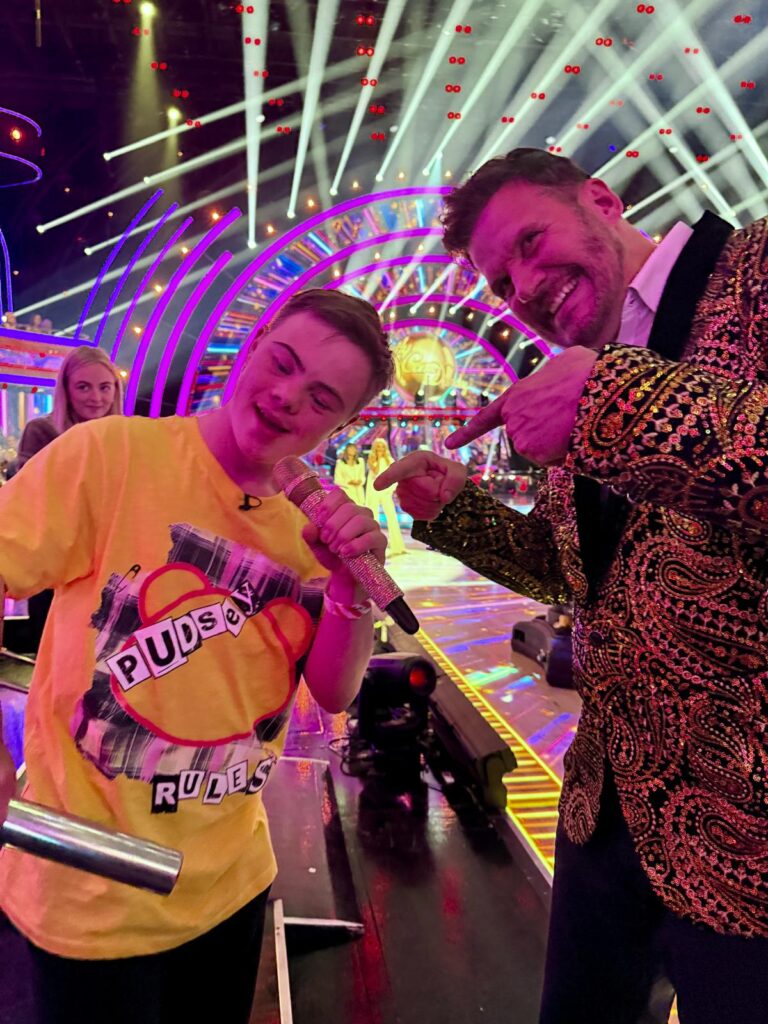
In Lloyd’s Words
Here’s a glimpse of what Lloyd said:
“I have Down syndrome. I have an extra chromosome, which makes me a bit different, but it doesn’t make me any less important than anyone else.
I want to show the world that people with Down syndrome can do anything if they have support. I can walk, I can run marathons, and I love to dance too! With the right support, anything is possible.”
Lloyd Martin
Just like Ellie Goldstein, who recently appeared on Strictly, Lloyd is showing the nation what people with Down syndrome can achieve, educating audiences about inclusion, acceptance, and ability.

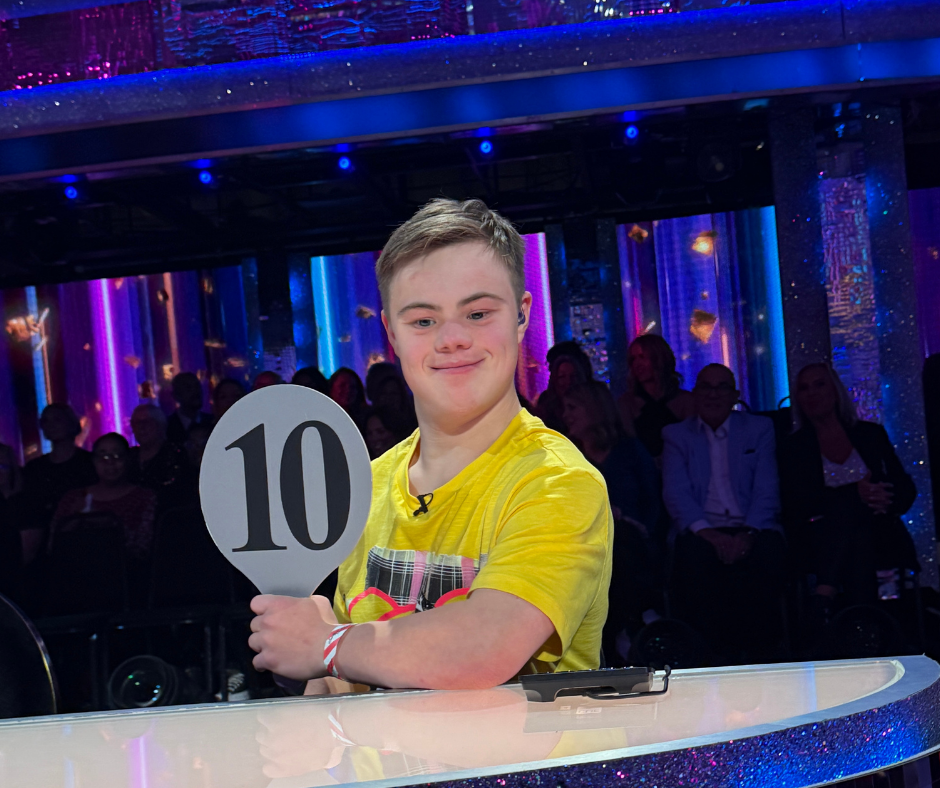
Did You Know? Tips to Support People with Down Syndrome
Here are a few ways people with Down syndrome can be supported to succeed with communication:
People with Down syndrome often learn best by seeing and doing, so repetition, pictures, gestures, or written prompts aid understanding.
Breaking information into small steps makes listening and following instructions easier.
Vision or hearing differences are common, so clear speech and visual cues support communication.
With practice and support, people with Down syndrome can perform confidently, even in front of cameras or large audiences.
Short-term memory can make remembering long speeches tricky. Autocues or written prompts help.
People with Down Syndrome can Achieve Remarkable Things
“I bring a lot of determination and confidence because I want to make my family proud.”
Lloyd Martin
At Stepping Stones DS, we are incredibly proud of Lloyd. From triathlon training to speaking on national TV, he exemplifies what can be achieved with courage, determination, and the right support.
His journey is a reminder that with patience, encouragement, and careful preparation, people with Down syndrome can achieve remarkable things – whether speaking, running, or dancing.
You can learn more about Lloyd here: Lloyd Martin SSDS Ambassador



